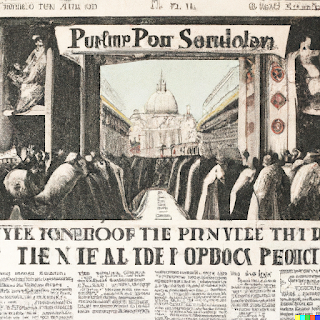 | |||||
| The Second Vatican Council convenes in St. Peter's Basilica. |
Little did I know as a boy in Catholic grammar school that the liturgy and worship of my time and place had had a long and tumultuous history, a journey spanning two millennia, from the breaking of the bread recorded in Acts (2:2), to the Greek concept of koinonia, the Orthodox liturgy of the East, to the dramatic Papal displays of Medieval Europe to the Tridentine Mass so familiar to a whole generation of Catholics who came before me.
So, reading the document on the liturgy from the Council today, more than three decades later, is very interesting because it is essential to go back to the source of what changed dramatically, a liturgy that had been practically unchanged since the Council of Trent. What has really changed, and what has really stayed the same? What did this document have to say, and how have we been faithful to it in our interpretations?
So, reading the document on the liturgy from the Council today, more than three decades later, is very interesting because it is essential to go back to the source of what changed dramatically, a liturgy that had been practically unchanged since the Council of Trent. What has really changed, and what has really stayed the same? What did this document have to say, and how have we been faithful to it in our interpretations?

